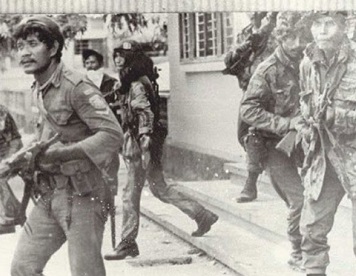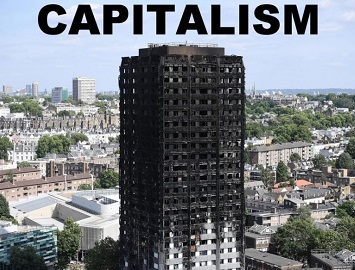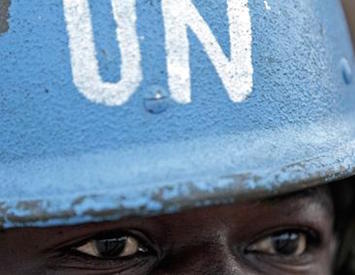Dr Adam Henry continues his insights into newly released documents exposing self-righteous and dispassionate attitudes by Australian diplomats during the invasion of 1970s East Timor.
FORMER DIPLOMAT CAVAN HOGUE suggests that the 1975 invasion of East Timor – in the first weeks alone a pure massacre of thousands of innocent people particularly the first attack and occupation of the capital Dili – was designed to prevent instability and prevent the Timorese from killing each other?
Highlighted in bold are sections from an article Hogue wrote in 2006:
Then there is the realist view that we do not want unstable entities close to our borders because they might be used by terrorists or enemies or adversely affect our interests in other ways. Interestingly, this was the reason given by Indonesia for their intervention in East Timor in 1976.
No doubt this intervention prevented the kind of ethnic and political based violence we are seeing now but their main reason was to prevent Timor being ruled by an unstable Communist government (Fretilin).
As Xanana Gusmao has recently pointed out, the Fretilin leadership is undemocratic and not averse to bloodshed. (The fact that incompetence, cruelty and corruption by TNI later lost the hearts and minds of the people does not alter the motivation for Indonesian intervention.
Well, excuse my sarcasm, weren’t the Timorese lucky that Suharto and the TNI was able to take care of all that potential "killing" in East Timor, with their own killing and destruction of Timorese on a truly grand scale. All the while, Australia – its various governments and senior diplomats – all quite sensibly understood Indonesian motivations and aimed to secure the Timor Gap — which they did.
The Indonesian military never lost the "hearts and minds of the people" in 1975, as implied by Hogue — they never had them. Any notion of a genuine act of self-determination for the East Timorese was rejected outright by Suharto and any process that led to a genuine act of self-determination making actual independence an option, was rejected by Whitlam and the pro-Suharto clique lead by Richard Woolcott (ambassador of the Australian Embassy in Jakarta and Hogue’s superior).
Any "genuine" vote on whether East Timor wanted to become "Indonesian" was doomed to fail, particularly if the other choice was "independence". If there had been obvious widespread popular support in East Timor for Indonesian takeover, surely Whitlam and Suharto would have pushed for such a vote in order to legitimate their desired outcome — Indonesian sovereignty over East Timor. They did not.
As Hogue could only know too well, there was no popular support for Indonesian sovereignty.
Breathtaking is it not?
The mental and intellectual effort to defend the Indonesian military and Australian policy of complicity by selective assertions and omissions, and carefully choosing the most coded language.
It must be godlike to turn day into night, but intellectually exhausting.
Even a cursory examination of the official DFAT publication ‘Australia and the Indonesian Incorporation of Portuguese Timor 1974-1976’, in relevant sections shows this. This publication is in itself a shocking collection of material and this the good stuff. That is, the material eventually collected, edited and then considered appropriate by DFAT for public release. The mind boggles as to what remains within the system as yet known or seen by public eyes.
The Indonesian invasion was never legal under international law. It makes no difference whether one thinks the Timorese "Communists" in 1975 or not, this was an illegal invasion — with systematic massacres, extra judicial killings, starvation, enslavement, rape and torture throughout an ongoing brutal occupation. Yet certain Australian political, diplomatic and economic interests decided to acquiesce and gain from this occupation. The legalities under international law were all known to Whitlam and the then DFA at the time, and by the pro-Jakarta clique as they continue to excuse, obfuscate and slither.
It was an illegal act of aggression — the same type of criminal conspiracy which saw people tried and executed at Nuremberg and Tokyo after WW2. If Suharto had turned into a designated enemy of the West (and did even a quarter of the crimes for which his regime was actually guilty), his name would be spoken of in the same breath as Saddam Hussein. All Suharto’s transgressions would be trumpeted by Canberra, London, Washington as textbook examples of tyranny, and the experts would have been highlighting East Timor and West Papua as the perfect case studies to support the shoddy edifice that has become R2P, but they are not. International law, ethics, war criminality et al is something we selectively apply to our official enemies, but never to ourselves or our friends.
We have seemingly learnt nothing from 1999 and have continued our opportunistic mentality in our post 1999 dealings with Timor Leste (including interference in their domestic affairs, hostility from Canberra toward Timorese wanting equitable re-negotiation of the Timor Gap, and even the use of intelligence bugging operations to gain advantages in economic negotiations with Timor Liste).
The brave whistleblower, an Australian ASIS operative, has been treated like a criminal by the Australian government, ostracised and has even had his passport taken away least he leave the country to testify abroad about these simply scandalous actions. The reaction within the world of Australian spooks to the treatment of this ASIS whistle-blower, particularly the removal of his passport, has been great resentment.
In another newspaper article (SMH) Hogue is quoted as saying:
‘There were atrocities on both sides.'
Yes, there are examples of Fretilin atrocities, but to suggest equivalence between the crimes of Suharto and the West is extraordinary. There were atrocities committed by the anti-Nazi resistance too, in many parts of Europe, but does this in any way diminish the awful crimes of Nazi aggression, systematic human rights abuses, war crimes, industrial genocide or the overwhelmingly admirable courage of those who were forced to resist in order to survive? Not in the slightest. In terms of atrocities by the aggressor and the defenders under attack in East Timor, not even close in terms of proportionality or scale. This was, and is of course, well known to the gatekeepers of Australian foreign policy towards Indonesia — the Whitlams, the Woolcotts, the Peacocks, the Hawkes. Keatings, Evans’, Hogues and so on.
Australian politicians and diplomats did nothing to censure the guilty in the wake of the blatant executions of the five Balibo journalists, or the execution of Roger East in Dili — nothing. These men were either Australians, naturalised or dual citizens, or had lived and worked in Australia for years coming from the UK or New Zealand.
The Indonesian interference in East Timor was known, of course, to Australian diplomatic and intelligence sources before the invasion. The potential for human rights abuses were accepted from the beginning and, once underway, accommodated almost until the last in 1999. Nothing was done about them. But we did a great deal to get our hands on Timorese oil and gas, and develop closer strategic ties with Suharto.
Looking again at these written annotations and Hogue’s quoted views, one wonders what has been learnt from the past by those who viewed themselves then – and now in comfortable retirements – as the best and brightest. When we turn to the ongoing horrors of West Papua, it appears we have learnt very little. When one looks over those handwritten comments on those recently unearthed diplomatic documents, one cannot help but be stunned by the omissions and weasel words in Roger’s email responses to Tom Allard or Hogue’s 2006 analysis. But they are symptomatic of a wider community of experts who have guided our foreign policy toward Indonesia since the 1960s. They turn night into day and present their actions as being totally reasonable.
To learn, one would first need to develop at least some intellectual and ethical shame about the past in order to initiate some sea change in the present and future. That is, apologise directly to the East Timorese, open all the archives, and renegotiate the Timor Gap (oil and gas revenues) in complete accordance with international law with a semblance of contrition.
Is there no depth to which we will plunge in order to keep "our" oil and gas, and obscure our silent complicity in the deaths of as many as 200,000 East Timorese?
Given what has been done in order to get hold of the resources and ignore such terrible crimes in the first place, apparently not.
Dr Adam Hughes Henry is a visiting fellow at the School of Culture, History and Language at the Australian National University. You can read more from Dr Hughes on his website.

This work is licensed under a Creative Commons Attribution-NonCommercial-NoDerivs 3.0 Australia License
Monthly Donation
Single Donation
Be informed. Subscribe to IA for just $5.









